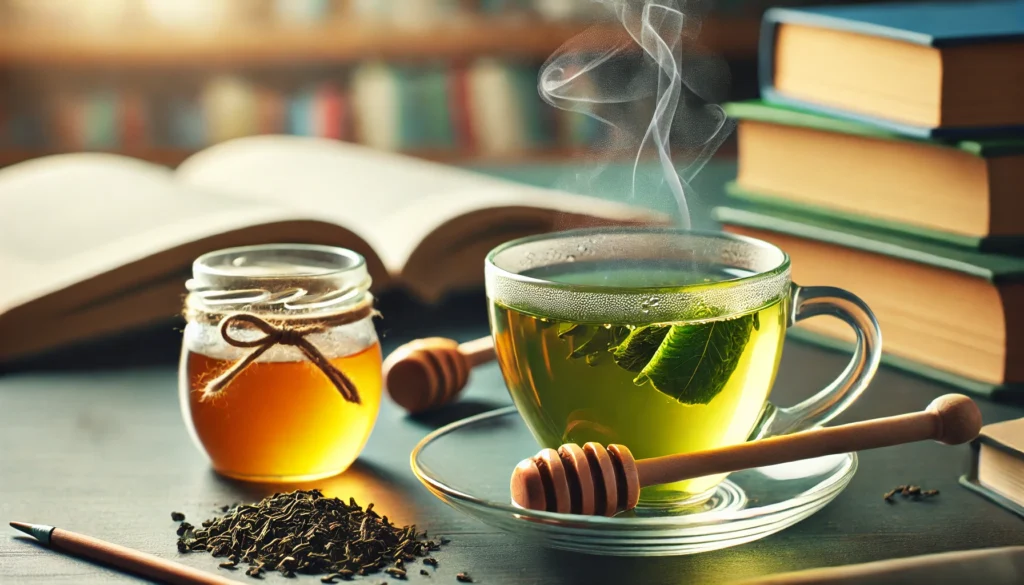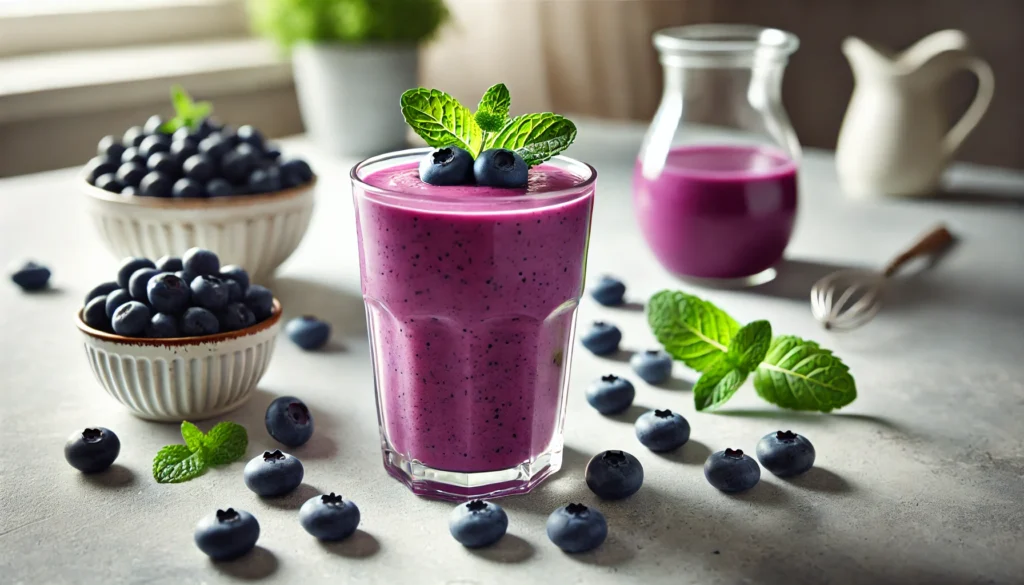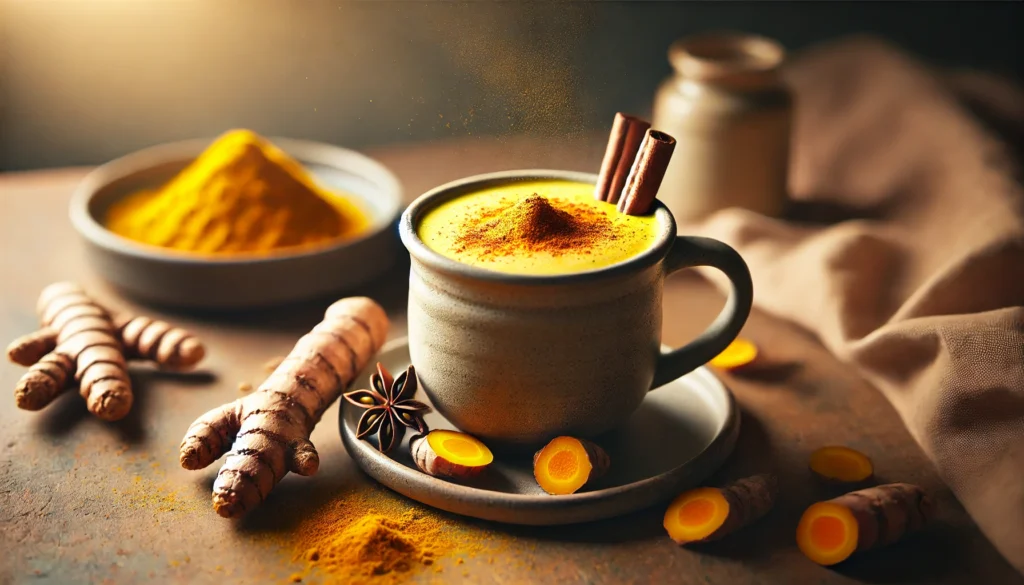In a world teeming with information and relentless distractions, maintaining a sharp and agile memory has become more critical than ever. With the digital age inundating us with data and the constant pings of notifications vying for our attention, cognitive clarity is invaluable. Interestingly, the beverages we consume can significantly impact our cognitive functions, offering a delicious and effective way to support brain health. Memory-enhancing beverages are gaining popularity, skillfully combining ancient wisdom with modern scientific discoveries to promote brain vitality. Let’s explore the fascinating realm of these brain-boosting drinks and discover which ones might suit your needs.
You may also like: Best Foods for Sharp Mental Focus
The Science Behind Memory-Enhancing Beverages
Understanding the science of how beverages can aid memory enhancement is essential before delving into specific drinks. The brain is a complex organ that demands a continuous supply of nutrients and oxygen to perform at its best. Specific compounds found in foods and beverages—like antioxidants, flavonoids, and omega-3 fatty acids—play a pivotal role in supporting cognitive functions by reducing inflammation, enhancing blood flow, and fostering the growth of new neurons.
Antioxidants and Brain Health
Antioxidants are powerful compounds that combat oxidative stress, a state associated with cognitive decline and neurodegenerative diseases. Oxidative stress occurs when there is an imbalance between free radicals and antioxidants in the body. Free radicals can cause damage to brain cells, leading to impaired cognitive functions. Antioxidants neutralize these free radicals, thus protecting brain cells from damage.
Moreover, antioxidants contribute to the maintenance of overall brain health by fortifying the brain’s defense mechanisms. By ensuring the brain cells are shielded from oxidative damage, antioxidants help preserve cognitive functions over time. They also play a role in the repair and regeneration of damaged brain cells, supporting long-term brain health.
The Role of Flavonoids
Flavonoids, a diverse group of phytonutrients found in fruits and vegetables, have been shown to enhance memory and learning. They do so by improving the function of the hippocampus, which is the brain’s central hub for memory formation and retention. The hippocampus is crucial for converting short-term memories into long-term ones, making flavonoids essential for robust memory functions.
Research indicates that flavonoids can modulate signaling pathways in the brain, leading to improved neuronal communication. This enhancement in communication facilitates the brain’s ability to process information and store it efficiently. Additionally, flavonoids possess anti-inflammatory properties that help reduce brain inflammation, further supporting cognitive health.
Omega-3 Fatty Acids
Omega-3 fatty acids, particularly docosahexaenoic acid (DHA), are crucial for maintaining the structure and function of brain cells. These essential fatty acids are integral components of cell membranes in the brain, ensuring their fluidity and flexibility. This fluidity is vital for optimal synaptic plasticity, which is the brain’s ability to adapt and reorganize itself—a process crucial for learning and memory.
DHA, in particular, supports the production and function of neurotransmitters, the chemical messengers that facilitate communication between brain cells. By enhancing synaptic efficiency, omega-3s aid in the consolidation and recall of information. Furthermore, they possess anti-inflammatory properties that protect brain cells from damage and support overall brain health.

Top Memory-Enhancing Beverages
Now that we have a comprehensive understanding of how specific compounds benefit brain health, let’s delve into some popular beverages known for their memory-enhancing properties.
Green Tea
Green tea is more than just a refreshing beverage; it’s a potent brain food drink. Rich in catechins, a type of flavonoid with strong antioxidant properties, green tea offers numerous cognitive benefits. Regular consumption of green tea has been linked to improved memory and attention, as it enhances neural connectivity, facilitating efficient communication between brain cells.
In addition to catechins, green tea contains L-theanine, an amino acid that promotes relaxation without causing drowsiness. The combined effect of catechins and L-theanine can improve mental clarity and focus. Moreover, green tea’s low caffeine content provides a gentle energy boost without the jitters, making it an ideal choice for sustained cognitive performance.
Blueberry Smoothie
Blueberries, often hailed as a superfood, are packed with anthocyanins, a type of flavonoid with potent antioxidant effects. A blueberry smoothie combines the brain-boosting benefits of these berries with other nutrient-rich ingredients like spinach or yogurt, creating a delicious and effective memory-enhancing beverage. The high antioxidant content in blueberries helps protect brain cells from oxidative stress, promoting long-term cognitive health.
Additionally, the nutrients in blueberries have been shown to improve communication between brain cells, enhancing memory and learning capabilities. The combination of blueberries with other ingredients in a smoothie can provide a balanced intake of vitamins and minerals, supporting overall health and well-being. This makes blueberry smoothies a convenient and tasty option for boosting brainpower.
Turmeric Latte
Turmeric, a golden spice revered in traditional cuisines, contains curcumin, a compound renowned for its anti-inflammatory and antioxidant properties. A turmeric latte, often referred to as “golden milk,” is a comforting drink that can improve memory by reducing brain inflammation and supporting neural health. Curcumin’s ability to cross the blood-brain barrier makes it particularly effective in protecting brain cells and enhancing cognitive functions.
The anti-inflammatory properties of curcumin help mitigate chronic inflammation in the brain, which is linked to cognitive decline and neurodegenerative diseases. By reducing inflammation, curcumin supports the brain’s ability to process information and form new memories. Furthermore, turmeric lattes can be a soothing and enjoyable way to incorporate the benefits of curcumin into your daily routine.
Beetroot Juice
Beetroot juice is a vibrant drink that can enhance cognitive performance by increasing blood flow to the brain. Rich in nitrates, which are converted into nitric oxide in the body, beetroot juice helps dilate blood vessels and improve circulation. Enhanced blood flow ensures that the brain receives an adequate supply of oxygen and nutrients, thereby boosting memory and focus.
Nitric oxide also plays a role in neurotransmitter release, further supporting cognitive functions. The increased circulation resulting from beetroot juice consumption can improve mental clarity and focus, making it an ideal choice for enhancing cognitive performance. Additionally, beetroot juice’s natural sweetness makes it a tasty and refreshing option for those looking to improve their brain health.
Ginkgo Biloba Tea
Ginkgo biloba, a herbal remedy used for centuries, is known for enhancing memory and cognitive function. The leaves of the ginkgo tree contain compounds that improve blood flow to the brain and possess antioxidant properties. Ginkgo biloba tea is a convenient way to harness the benefits of this ancient herb, supporting improved cognitive performance and memory retention.
The increased blood flow resulting from ginkgo biloba consumption can enhance mental alertness and focus. Additionally, its antioxidant properties protect brain cells from damage, promoting long-term cognitive health. Ginkgo biloba tea can be a soothing and effective addition to your daily routine, offering a natural way to support brain function.
Coffee
Coffee is primarily known for its ability to increase alertness, but it also has cognitive-enhancing properties. Caffeine, the active ingredient in coffee, blocks adenosine receptors in the brain, leading to increased neurotransmitter release. This process not only heightens alertness but also improves memory consolidation, making coffee a popular choice for enhancing cognitive performance.
The stimulating effects of caffeine can improve reaction times and mental clarity, supporting efficient information processing. However, moderation is key, as excessive caffeine consumption can lead to jitteriness and anxiety. When consumed in appropriate amounts, coffee can be a powerful tool for boosting memory and focus, making it a staple in many people’s daily routines.
Matcha
Matcha, a type of powdered green tea, is rich in L-theanine, an amino acid that promotes relaxation without causing drowsiness. The combination of L-theanine and caffeine in matcha can improve memory, attention, and cognitive performance. Matcha offers a balanced energy boost, enhancing mental clarity and focus while promoting a sense of calm.
The unique preparation of matcha, which involves whisking the powdered tea with water, results in a concentrated source of antioxidants and nutrients. This makes matcha an effective choice for supporting brain health and boosting cognitive functions. The ritual of preparing and consuming matcha can also provide a moment of mindfulness, further contributing to mental well-being.

Practical Tips for Incorporating Memory-Enhancing Beverages into Your Diet
While these beverages offer potential cognitive benefits, it’s essential to consume them as part of a balanced diet. Here are some practical tips for incorporating memory-enhancing drinks into your daily routine:
Start Your Day with a Boost
Kickstart your morning with a cup of green tea or matcha to stimulate your brain functions. The gentle caffeine content in these beverages can provide a steady energy boost without the jitters. Pairing your morning beverage with a nutritious breakfast can further support cognitive performance throughout the day.
Consider preparing your green tea or matcha with mindfulness, taking a moment to focus on the aroma and taste. This practice can enhance the overall experience and set a positive tone for your day. Experiment with different types of green tea or matcha to find a flavor profile that suits your preferences.
Midday Refreshment
Replace sugary drinks with a blueberry smoothie or beetroot juice for a nutritious and brain-boosting alternative. These beverages can provide a refreshing pick-me-up during the day, supporting mental clarity and focus. The natural sweetness of these drinks makes them a satisfying choice for curbing midday cravings.
Incorporate a variety of ingredients into your smoothies to ensure a balanced intake of nutrients. Spinach, yogurt, and nuts can add texture and nutritional value, making your smoothie a wholesome option. Preparing your smoothie or juice in advance can make it easy to enjoy a brain-boosting refreshment on the go.
Evening Relaxation
Unwind with a turmeric latte or ginkgo biloba tea to support brain health while promoting relaxation. These calming beverages can help you wind down after a long day, providing a soothing experience that aids cognitive recovery. The comforting warmth of these drinks can also be a pleasant way to prepare for a restful night’s sleep.
Consider incorporating a relaxation ritual as you enjoy your evening beverage, such as reading a book or practicing deep breathing. This can enhance the overall relaxation experience, contributing to improved mental well-being. Experiment with different spices or herbal blends to tailor your evening drink to your taste preferences.
Consistency is Key
Regular consumption is essential for reaping the long-term cognitive benefits of these beverages. Consistency in incorporating brain-boosting drinks into your diet can lead to sustained improvements in memory and focus. Set a routine that includes your favorite beverages at specific times of the day to make them a habitual part of your lifestyle.
Track your progress and note any changes in cognitive performance over time. This can help you identify which beverages work best for you and make any necessary adjustments. Remember that these drinks are most effective when combined with a balanced diet and a healthy lifestyle.

Future Implications and Trends
The trend of using beverages as cognitive enhancers is gaining momentum, with ongoing research exploring new ingredients and formulations. As we continue to uncover the complex relationship between diet and cognitive function, more innovative products designed to support brain health are expected to emerge.
The Rise of Nootropic Beverages
Nootropics, often referred to as “smart drugs,” are substances that enhance cognitive function. The beverage industry is beginning to incorporate nootropic ingredients into drinks, offering consumers an easy way to improve memory and focus. These innovative beverages are designed to provide a convenient and enjoyable method for boosting brainpower.
The inclusion of nootropic ingredients in beverages can cater to a growing demand for functional drinks that support cognitive performance. As research continues to explore the potential of nootropics, we can expect to see a wider range of options available to consumers. These beverages may become a staple for individuals seeking to optimize their mental capabilities.
Personalized Nutrition
Advances in personalized nutrition are likely to influence the development of memory-enhancing beverages tailored to individual needs. Consideration of factors such as genetics, lifestyle, and health status can lead to customized drinks that offer targeted cognitive benefits. This personalized approach can enhance the effectiveness of memory-enhancing beverages.
The integration of technology and nutrition science can facilitate the creation of personalized beverage solutions. Consumers may be able to receive recommendations based on their specific dietary and cognitive needs, leading to more impactful results. This trend toward personalization reflects a broader shift in the health and wellness industry toward individualized care.
Global Influence and Cultural Integration
As the popularity of memory-enhancing beverages grows, there is potential for these drinks to influence global dietary habits and cultural practices. Traditional beverages like matcha and turmeric lattes are being embraced worldwide, leading to a fusion of cultural tastes and preferences. This global influence can result in the creation of new and exciting beverage offerings.
The integration of cultural elements into memory-enhancing beverages can enrich the consumer experience, providing a deeper connection to the origins of these drinks. This trend highlights the importance of respecting and celebrating diverse culinary traditions while exploring new ways to support brain health. The global exchange of ideas and flavors can lead to innovative approaches to cognitive enhancement.
Conclusion
Memory-enhancing beverages provide a fascinating intersection of ancient wisdom and modern science. By incorporating these brain food drinks into your diet, you may experience improved memory, focus, and overall cognitive function. As research continues to unveil the potential of these beverages, they offer a promising avenue for supporting brain health in an increasingly complex world.
Remember, while these drinks can be beneficial, they should complement a holistic approach to health that includes a balanced diet, regular exercise, and mental stimulation. Embracing a multifaceted approach to cognitive well-being can lead to sustained improvements in memory and overall mental performance. As you explore the world of memory-enhancing beverages, consider how they can fit into your unique lifestyle and support your journey toward optimal brain health.
Further Reading:
21 Brain Boosting Beverages to Improve Your Memory
Important Note: The information contained in this article is for general informational purposes only, and should not be construed as health or medical advice, nor is it intended to diagnose, prevent, treat, or cure any disease or health condition. Before embarking on any diet, fitness regimen, or program of nutritional supplementation, it is advisable to consult your healthcare professional in order to determine its safety and probable efficacy in terms of your individual state of health.
Regarding Nutritional Supplements Or Other Non-Prescription Health Products: If any nutritional supplements or other non-prescription health products are mentioned in the foregoing article, any claims or statements made about them have not been evaluated by the U.S. Food and Drug Administration, and such nutritional supplements or other health products are not intended to diagnose, treat, cure, or prevent any disease.


